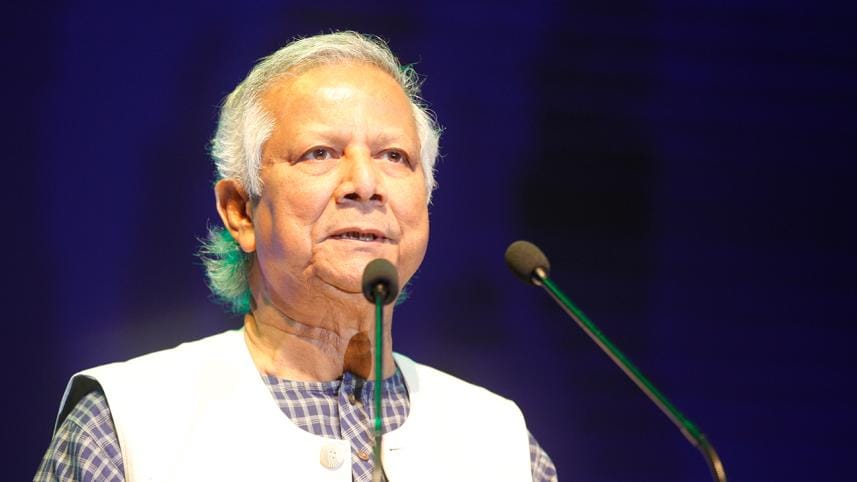World’s growing inequality is ‘ticking time bomb’: Yunus

The widening gap between rich and poor around the world is a "ticking time bomb" threatening to explode into social and economic unrest if left unchecked, Nobel Peace laureate Muhammad Yunus said today.
The banking and financial system has created a world of "the more money you have, the more I give you" while depriving the majority of the world's population of wealth and an adequate standard of living, Yunus told the Thomson Reuters Foundation.
"Wealth has become concentrated in just a few places in the world ... It's a ticking time bomb and a great danger to the world," said the founder of the microfinance movement that provides small loans to people unable to access mainstream finance.
Yunus cited Donald Trump's victory in the US presidential election on Nov 8 and Britain's vote to leave the European Union on June 23 as expressions of popular anger with ruling elites who have failed to stem the widening global wealth gap.
A 2016 report by charity Oxfam showed that the wealth of the world's richest 62 people has risen by 44 percent since 2010, with almost half of the super-rich living in the United States, while the wealth of the poorest 3.5 billion fell 41 percent.
"This creates tension among people at the bottom (of the income ladder). They blame refugees and minorities - and unscrupulous politicians exploit this," said Yunus, who is due to address Trust Women, an annual women's rights and trafficking conference run by the Thomson Reuters Foundation, later today.
"You don't trust other people, so you build walls," he said in reference to US President-elect Trump's promise to build a wall along the southern US border to keep out Mexican immigrants that he said were rapists and criminals.
BORN ENTREPRENEURS
To break free from an unequal financial system that disadvantages the poor, people should use their creative energy to become entrepreneurs themselves and spread wealth among a broader base of citizens, said Yunus.
"People are not born to be job seekers - they are entrepreneurs by nature," he said, adding that businesses that are focused more on doing social good than generating maximum profit can help to rectify economic and gender inequality.
"If wealth comes to billions of people, this wealth will not come to the top one percent (of rich people), and it will not be easy to concentrate all the wealth in a few hands," he said.
Yunus, 76, revolutionised finance for the poorest when he started providing tiny loans to Bangladeshi villagers at market interest rates without requiring collateral, helping them to escape what he termed a "slavery" relationship with loan sharks.
Grameen Bank, founded by Yunus, has lent money to 8.8 million people in Bangladesh alone since it was set up 40 years ago and its model of providing small loans to people, mostly women, has spread across the world.
Despite microfinance's global success there have been concerns that interest rates charged on the loans of up to 20 percent are high.
But Yunus says the rates are still far lower than local interest rates in developing countries or the 300 per cent or more that loan sharks might charge.



 For all latest news, follow The Daily Star's Google News channel.
For all latest news, follow The Daily Star's Google News channel.
Comments